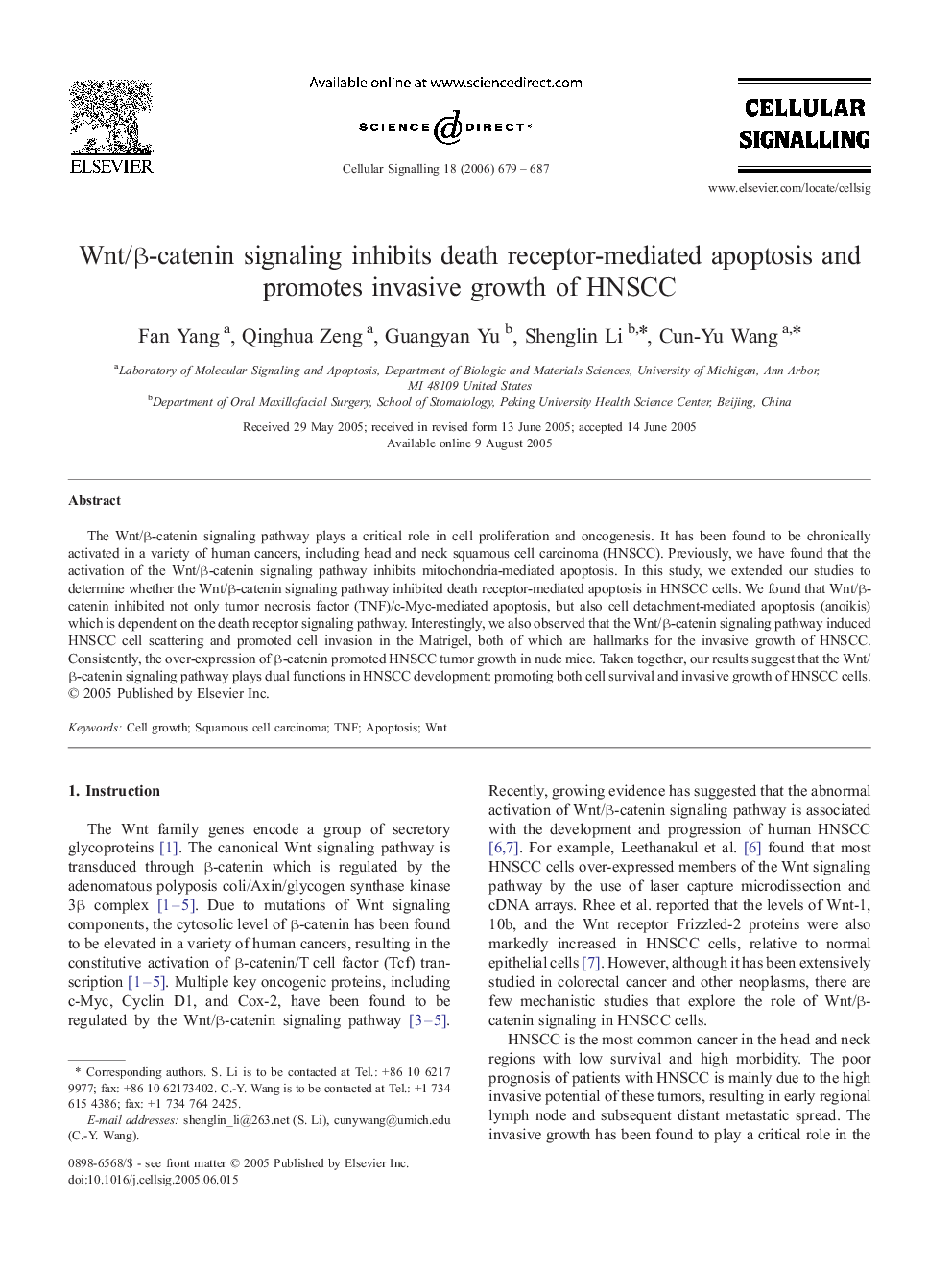| Article ID | Journal | Published Year | Pages | File Type |
|---|---|---|---|---|
| 1964595 | Cellular Signalling | 2006 | 9 Pages |
The Wnt/β-catenin signaling pathway plays a critical role in cell proliferation and oncogenesis. It has been found to be chronically activated in a variety of human cancers, including head and neck squamous cell carcinoma (HNSCC). Previously, we have found that the activation of the Wnt/β-catenin signaling pathway inhibits mitochondria-mediated apoptosis. In this study, we extended our studies to determine whether the Wnt/β-catenin signaling pathway inhibited death receptor-mediated apoptosis in HNSCC cells. We found that Wnt/β-catenin inhibited not only tumor necrosis factor (TNF)/c-Myc-mediated apoptosis, but also cell detachment-mediated apoptosis (anoikis) which is dependent on the death receptor signaling pathway. Interestingly, we also observed that the Wnt/β-catenin signaling pathway induced HNSCC cell scattering and promoted cell invasion in the Matrigel, both of which are hallmarks for the invasive growth of HNSCC. Consistently, the over-expression of β-catenin promoted HNSCC tumor growth in nude mice. Taken together, our results suggest that the Wnt/β-catenin signaling pathway plays dual functions in HNSCC development: promoting both cell survival and invasive growth of HNSCC cells.
